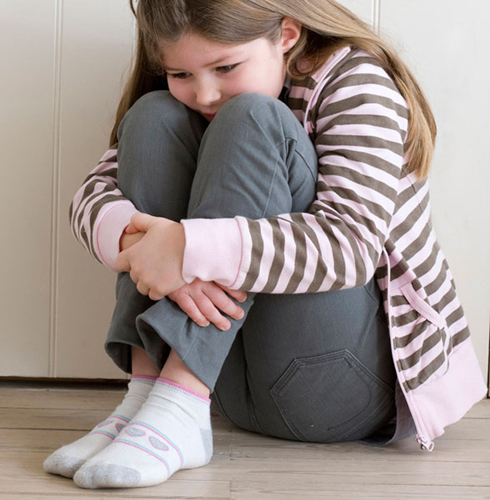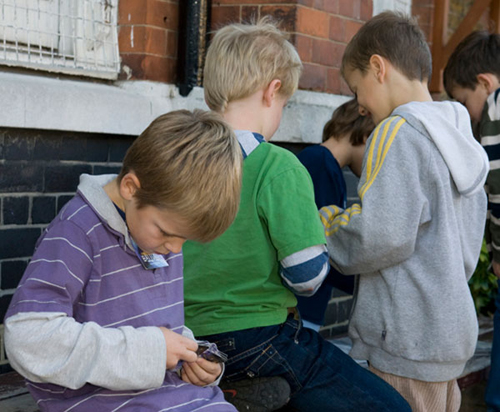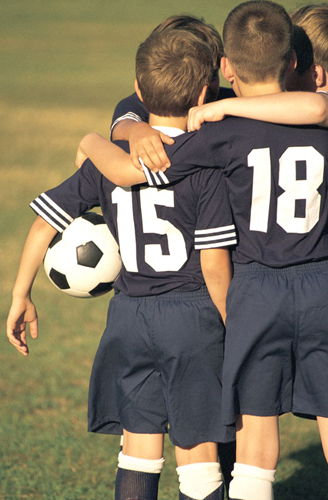Bullying A remarkably common problem
Bullying is often a
factor behind a child’s reluctance to go to school or even to leave
home. Unfortunately, with so much digital connectivity, children are not
even safe from bullying in their own homes now that mobile phones and
the internet provide more insidious means for intimidation and
persecution.
| Q: |
Who does it happen to?
|
| A: |
Bullying is remarkably common in primary school, and most
children will have some experience of it, even if it’s only witnessing
it happen to someone else. It is a major factor in school refusal, with
all its associated educational and emotional damage, and also leads to
loneliness, loss of confidence, low self-esteem, anger, and a sense of
helplessness that is strongly related to the development of depression.
Sometimes adults are confused about the difference between an
disagreement or distancing between friends and the victimization that is
characteristic of bullying. Bullying behavior can include unpleasant
teasing, threats, spreading rumors, and socially isolating someone. It
can also be physical aggression, such as pushing and shoving in crowds.
It quite frequently involves extortion of personal property under
threat, and can include taunting about disability, race, or gender.
Bullies are often
feared and admired by other children. They are perceived as strong and
they get satisfaction from hurting and humiliating their victims.
However, bullies are often victims already, and frequently learn to
bully by being bullied themselves. No child is immune from being a
victim, but certain factors increase and decrease their risk. Having
friends protects children from bullying. Being alone at playtimes at
school, being shy and anxious, and less popular all seem to set a child
up as a bullying risk. Surveys show that children rarely tell anyone
that they are being bullied. Parents should therefore look out for
unexplained injuries, ripped or damaged clothing, loss or damage of
personal property and money, mood swings, and sleep problems.
|
Helping your child
The best way your child
can protect himself against a bully is to always tell an adult when he
is being threatened, to hold his head high and act as if he is
confident, and to stay close to friends, and play in a group rather than
alone. Please advise your child not to fight back when bullying
happens. If he attempts to fight back, he is likely to be overpowered
and his reaction will give even more satisfaction to the bully.
Learning to be
strong inside can be hard for many children, and you can help with this.
You can build your child’s emotional strength so he is less likely to
be bullied or, if bullying happens, the effects will be less. Remind
your child of his good points so his self-esteem is raised. Any activity
that gives your child a taste of success and the opportunity to have a
few friends such as swimming classes or Cub Scouts and Brownies or Boy
Scouts and Girl Scouts are all good ideas. Martial arts classes may be a
good idea for confidence boosting—although the idea is not to teach him
how to fight, just how to feel confident, square his shoulders, think
positive thoughts, and walk tall.
If the problem
continues, you could enlist the help of your child’s school. The class
teacher, school counselor, or other members of staff can help you work
out ways to support your child. Most schools have an anti-bullying
policy that tells you what the school will do to tackle this issue. This
should spell out how the school will work with victims and how they
will help the bully to act with kindness. Really effective policies are
those that pupils, parents, and teachers have developed together. As
well as building anti-bullying subject matter into the curriculum,
schools can help by investing in playground improvements, establishing
buddy systems, and possibly even offering formal assertiveness training.
Loneliness and making friends
Being lonely at school is a
miserable experience. Being able to make and keep friends is an
important protective factor against school phobia and bullying. Being
part of a circle of friends makes it much less likely that your child
will be bullied. In fact having a close friend in these middle-childhood
years is important for good psychological health in adulthood.
Friendships are about liking the same activities, helping each other
out, being able to take turns in a game, and learning how to share and
compromise with ease. Friends like and admire each other and share a
sense of loyalty and commitment. They do argue, but they are better able
to make up than children who are not special friends.
If your child has the
skills to make friends, she is more likely to appear confident, making
her happier about herself and about being at school—and less of a target
for bullies. These are skills that can be learned through play with
cousins or neighbors; friendships are often built on proximity. They are
also about sharing similar interests, so you can encourage your child
to join a class, club, or a sports team. Encouraging your child to
invite friends over to play can also build friendships. If she is
struggling to make friends, practice with her—act out together how she
might approach others and ask to join in their games. Also enlist the
help of her teacher to have your child paired with others in the class
to form bonds by working together.
Left out
Social exclusion, or being left out of activities, is a fairly common form of bullying.


Staying strong
If your child is being bullied, martial arts can give her a sense of confidence.

In the team
Clubs and activities that take place away from school may offer your child a new set of friends.
